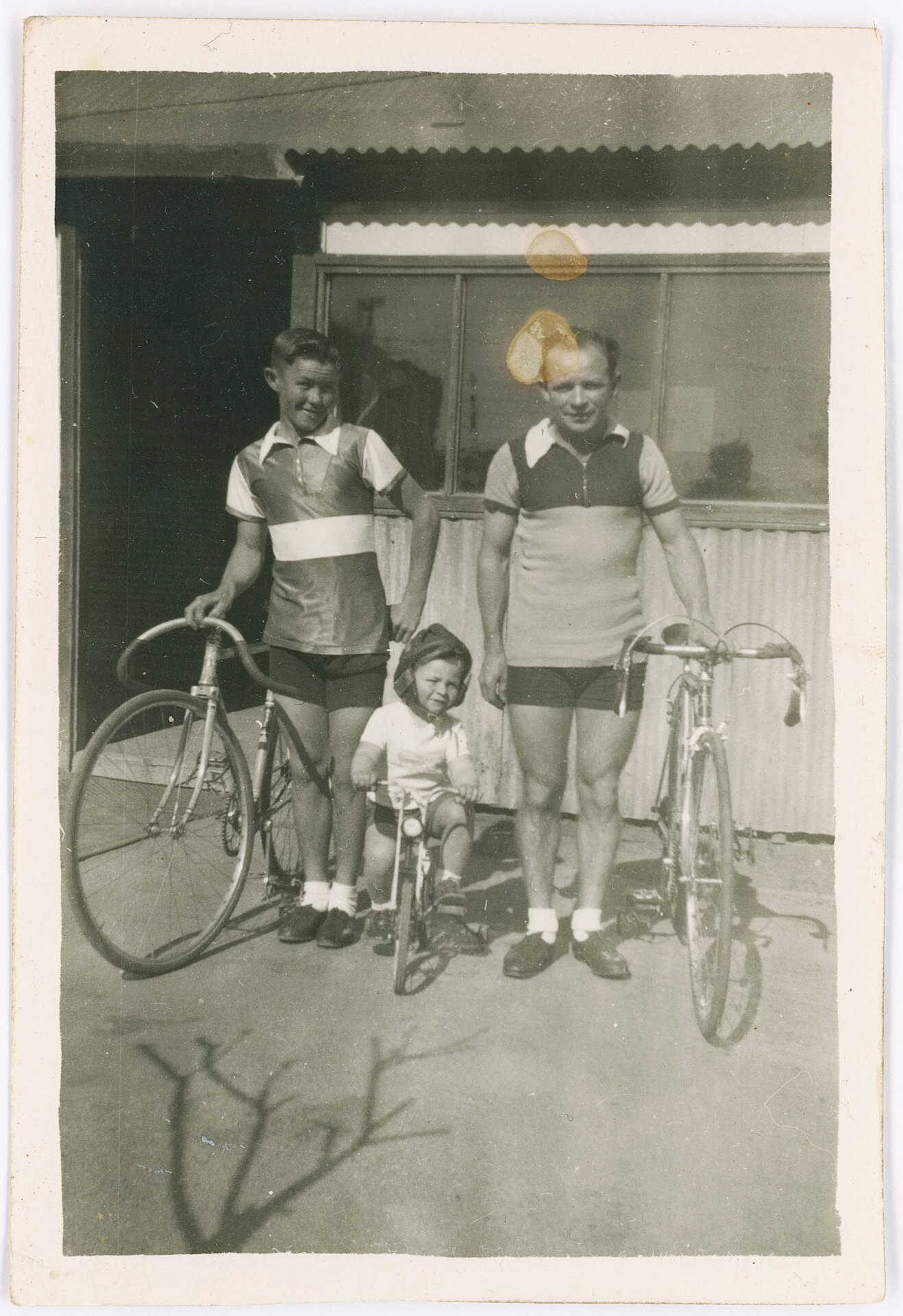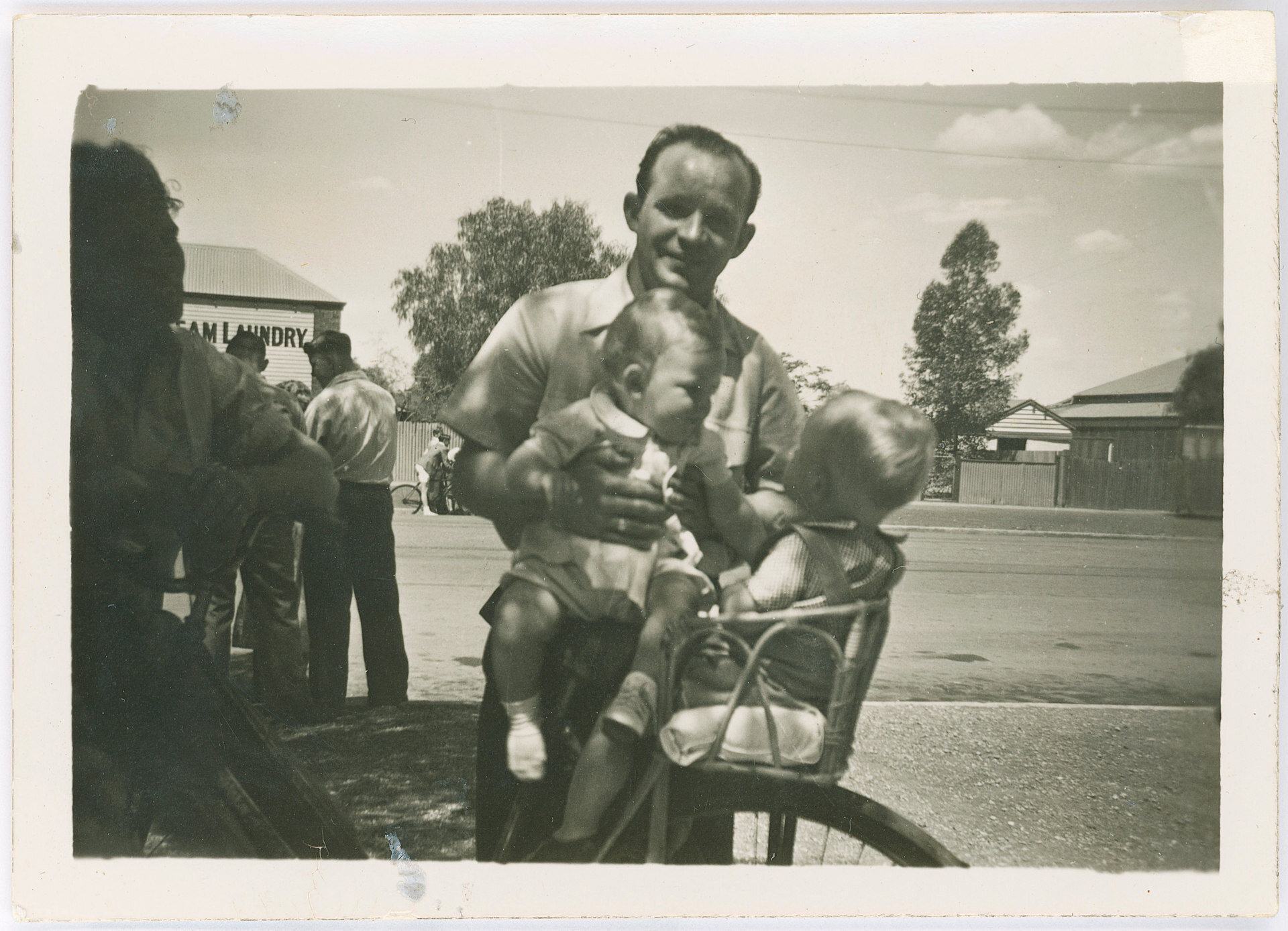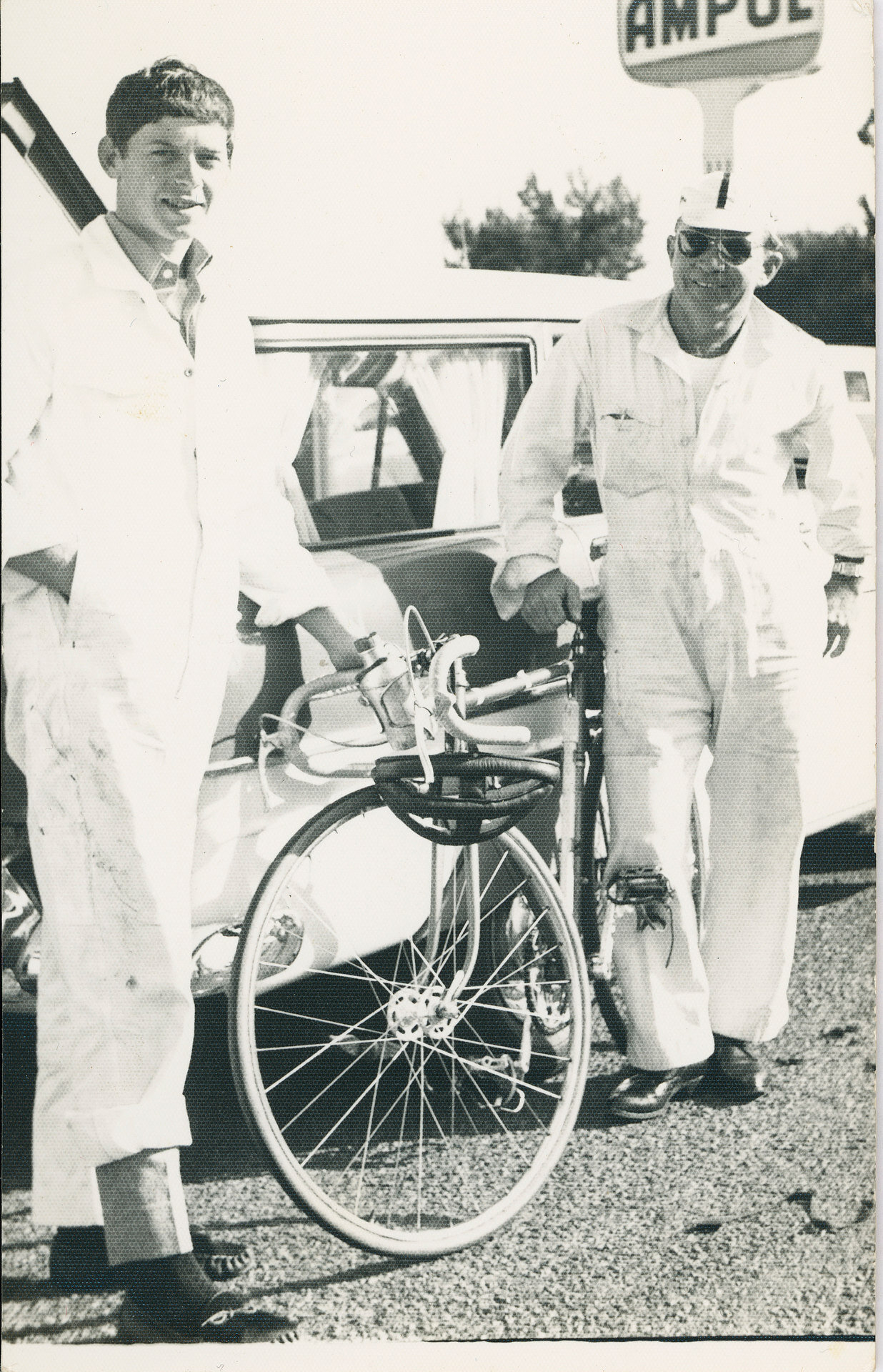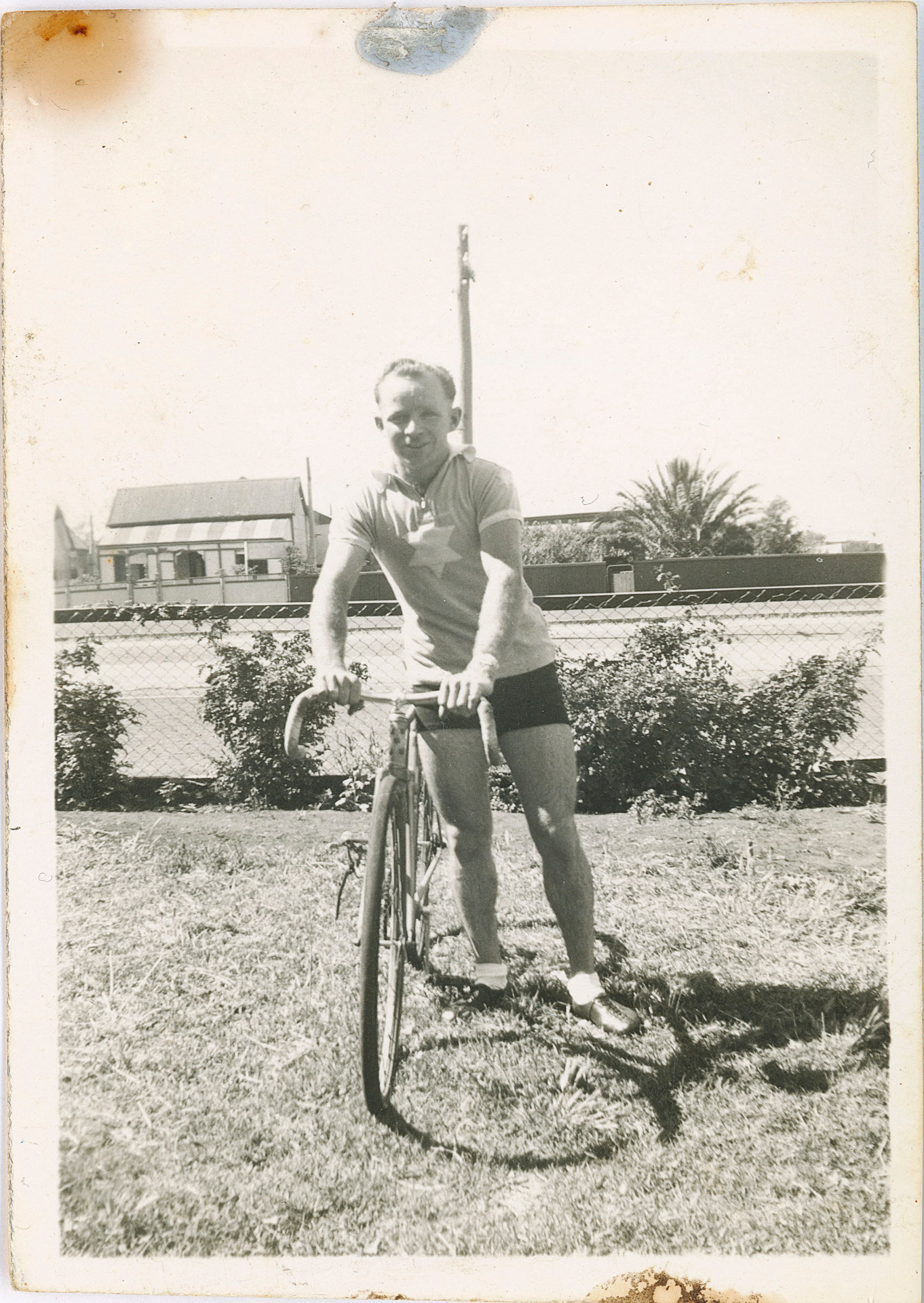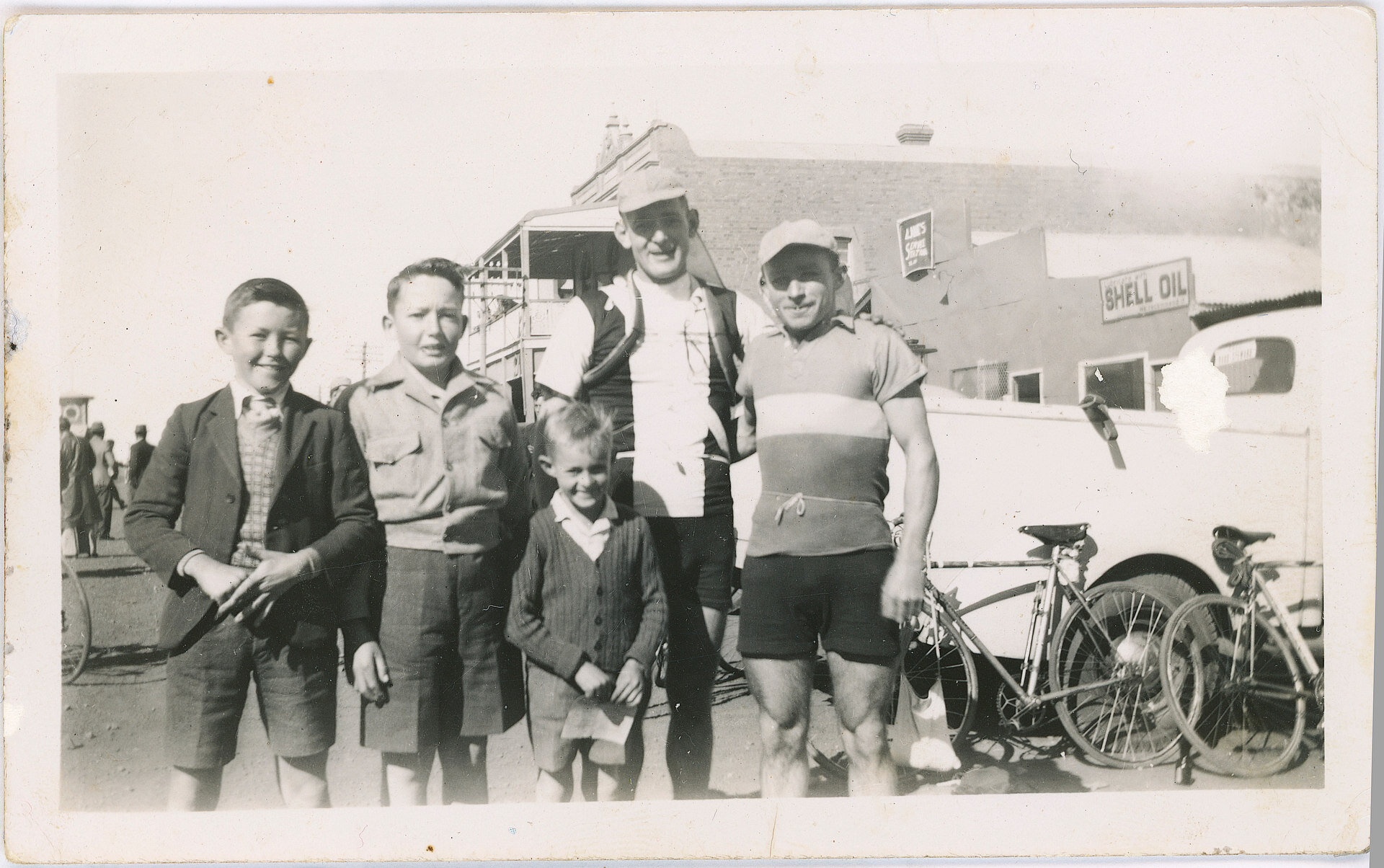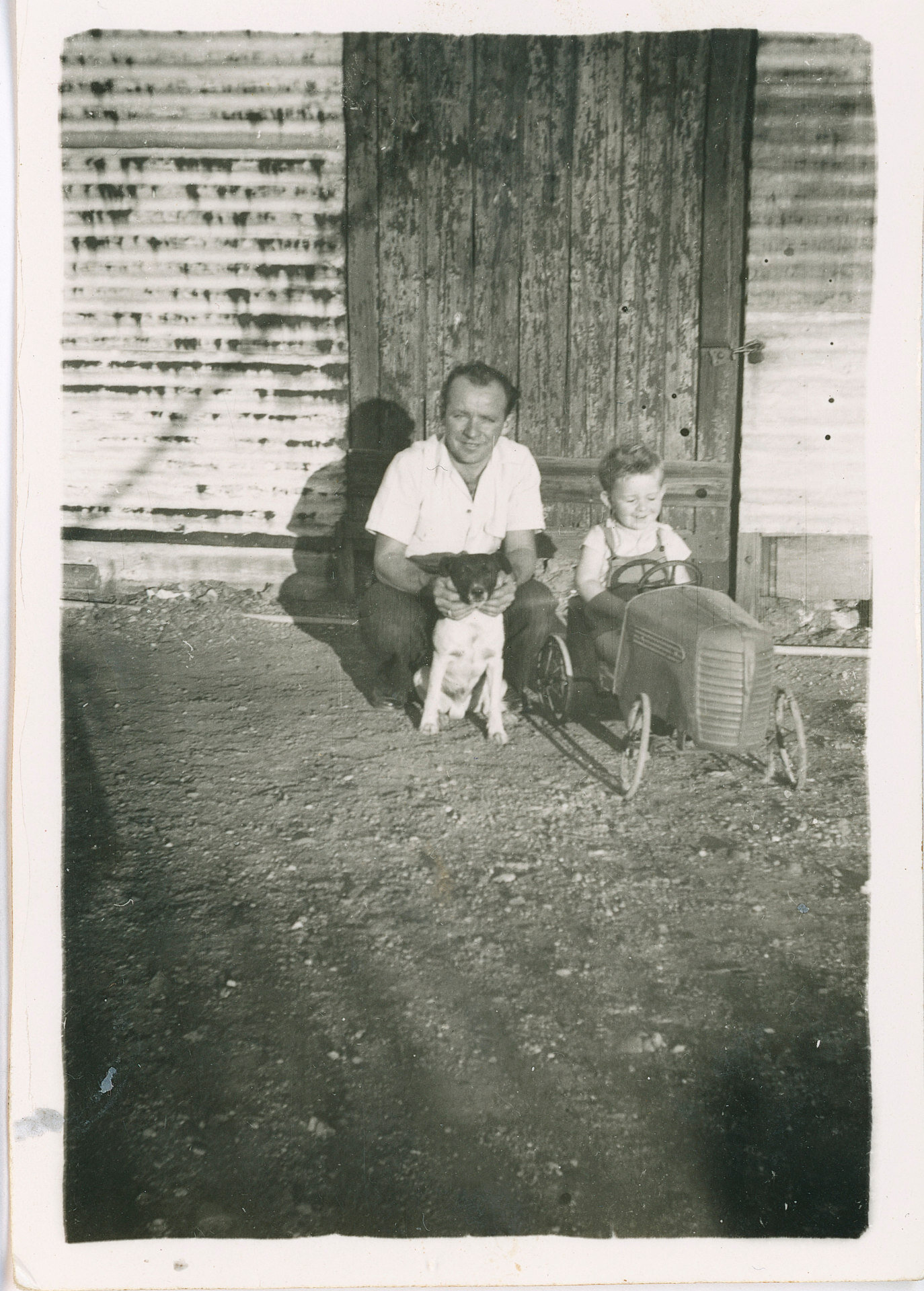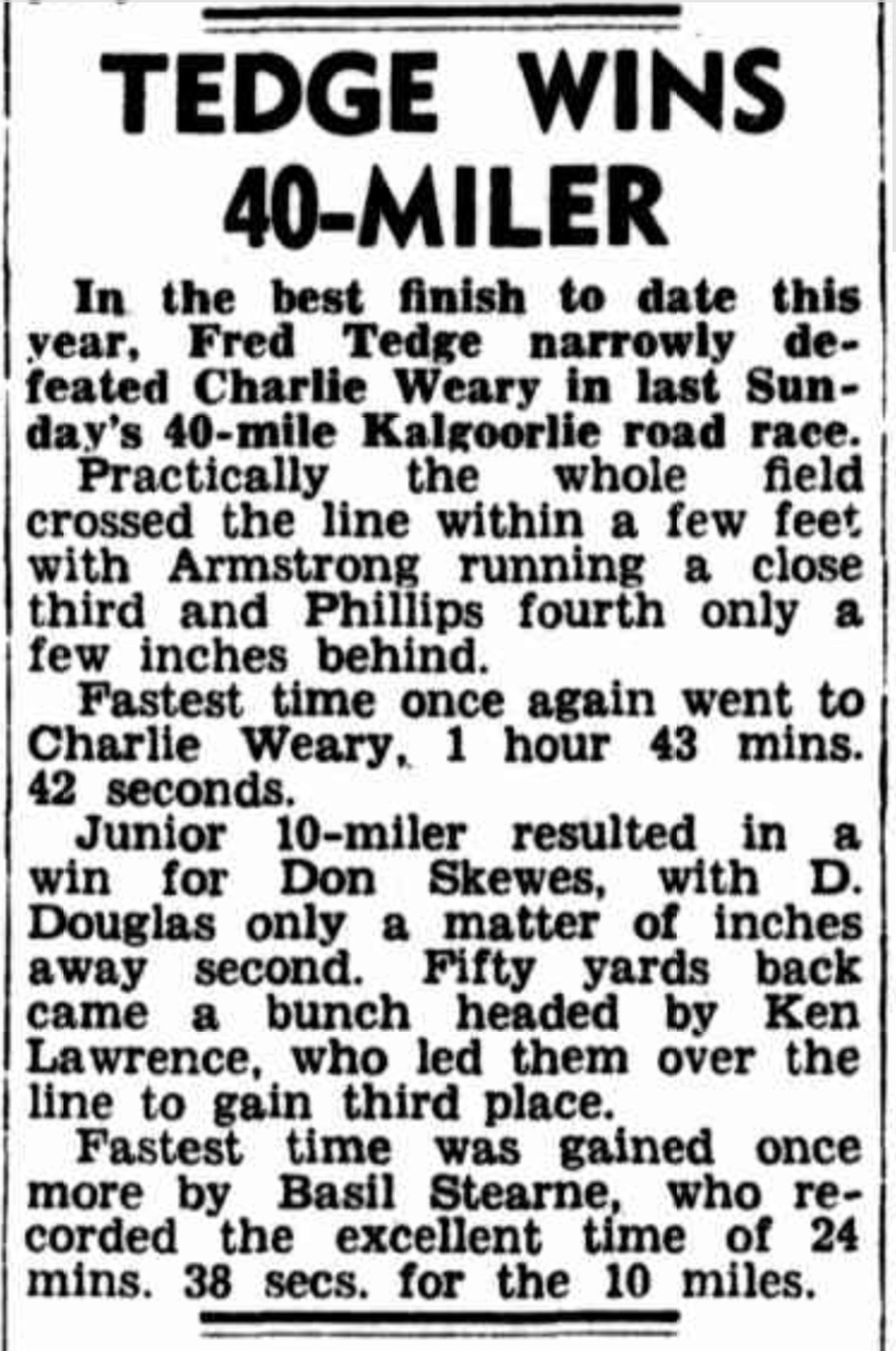The Longer Read - Flash Cycles and Eddie Barron
Eddie Barron was a top-ranked West Australian cyclist before becoming arguably the single most important booster of cycling in WA from the late 1940’s through to his retirement in the 1980’s. His selfless, indefatigable support for and administration of cycle racing and cyclists would see him dubbed “the father of cycling in Midland”. He was instrumental in getting the world-class Speed Dome built in Midvale. In honour of that achievement and the legacy he left, the road leading into the velodrome was named in his honour.
Edward Raymond Campbell Barron was born on May 5th 1920 in York, a small country town approximately 95km’s from Perth, Western Australia. He was raised on a farm in nearby Dalaik.
His competitive spirit was born in the race with his brothers Roy and Arthur to get to the one horse the Barron family owned. His first bike presented the opportunity to move around with freedom and the hilly terrain in the region provided the ideal training ground for the three budding young cyclists.
In 1934, oldest brother Arthur represented WA in the Junior Championships. “Eddie was great swimmer, especially breaststroke” and he was also a very good cyclist. Eddie chose cycling and in August 1936 at the age of 16 years, he won the state final of the Malvern Star State Junior championship and with it a spot for the national final in Sydney.
Depression era austerity saw the Barron family leave the farm in York for Kalgoorlie. Pop Barron would find work in a grocery store and running two-up games. They would soon return however, moving into a new home in Midland.
Showing promise as a competitive cyclist, Eddie was sponsored to ride for Swansea Cycles. Swansea also employed him and he rode back and forth from Midland to Fremantle every day. He was introduced to bicycle retailing and manufacture and he learnt how his eventual competitor operated.
On the 7th of December 1938, Eddie married Joy who he had met in York. They were 18 and 17 years of age respectively. Joy was from North Fremantle though schooled at the live-in Catholic Children’s Home in York. She had worked in the York Hospital before marrying. They had their first child Shirley in 1939.
In April 1942 at 21 years of age, Eddie began his military service though he initially remained stationed in Perth. In April 1943, he was reassigned to the Imperial Forces. Joy gave birth to their son Bevan in 1944 and in the same year, with the world still at war, Eddie was shipped off to QLD.
Eddie continued his army training in Queensland, including learning to be a Frogman which entailed tactical scuba diving and underwater swimming. In June 1945 he was posted overseas to Borneo.
The idea of opening his own bike shop might have taken hold in Borneo. Bev and Pat Barron recounted in January 2020 how TG3 Tech Storeman Edward Barron would remove - one would hope - substandard hubs from army issue bicycle wheels. Rather than dispose of them, he stored them in an “out of the way” 44gallon drum. To his dismay, the drum was blown up along with other army property when the Australian forces decamped.
Released from the army in January 1946, Eddie arrived back in WA to a normal life. He returned to Swansea Cycles and took up cycling again. For a period of time after Swansea, he worked for Lucas Cycles in the city.
The post-war years are considered by many to be the golden era of cycling when the winningest of cyclists could earn large sums of money. Coming home with £100 after a night of racing was not unheard of. This at a time when the average wage was around £9 per week.
Eddie’s desire to start his own shop and support his family stoked his cycling ambitions. By September 1946, less than 9 months after returning from Borneo, the 5’8” Eddie was considered a “prominent senior pro [and]… noted sprinter”. He won the York Wheel Race and the Fremantle Cycling State 100 Mile Race, becoming State Champion in the process. Racing from scratch in the Beverley-to-Perth, the most prestigious race for professionals in WA, he set fastest time. He repeated best time from scratch in 1948.
With savings behind him, by Tuesday 19th August 1947, the first known advertisement for Flash Cycles with Eddie Barron as proprietor appeared in The Swan Express newspaper.
Why the Flash moniker was chosen is not known. There was a pre-World War I Flash bike shop in the Perth suburb of Highgate, but there is no evidence or even suspicion that there was any connection.
Similarly, no connection to Flash Gordon, the comic strip resistance fighter. Eddie was more a fan of cowboy movies, which he enjoyed watching at drive-in theatres.
The new Flash Cycles was located at 29 Newcastle Rd Midland, near the Midland cycle racetrack.
Formerly occupied by Ajax Cycles, the two-storey building also provided a home above the shop for his wife and children, Eddie’s mother Ruby - or “Floss” as she was known - father Roy, and brother Arthur and his son. The 3 upstairs rooms also accommodated club meetings.
At the rear of Flash Cycles was a generous garden area and Joy shared Eddie’s other passion, gardening. Fastidiously grown and maintained, Joy and Floss would pick bunches of flowers from the garden and every week catch the train into Perth. The practice a distant memory, they would arrange the flowers for the stage of the Royal Cinema before the evening’s proceedings.
With grand-dad Roy working at the Midland Rail Workshops and Floss taking care of the cooking duties, Joy was busy doing the books for Flash and serving customers. In 1951, Joy and Eddie welcomed their third child, Linley. Eddie found the time to ride across Australia that year too.
Flash Cycles expanded and by 1953 there were three retail outlets – the original store in 29 Newcastle Rd Midland, Swan St moving later to 196 James St in Guildford and 175 Perth Rd in Bassendean. The last branch to be opened was in Belvidere St, Belmont. As early as 1951, Flash was also transforming - if not yet by name - into the Flash Sports Depot. As well as ball game supplies, guns, lawnmowers and whatever, Flash also became agents for BSA, Sunbeam and Royal Enfield motorcycles.
A significant acquisition - though not long lived - was the old Gibson’s Lolly Factory in James St Guildford behind the Flash shop. Pat & Bev Barron in conversation remembered how “the cellar was still filled with [discarded] apple cores and millions and millions of fruit pips and stones”.
There in the old lolly factory, the stalwarts of Flash bike builders would braze together not only Flash branded bicycles, many with the iconic lightning bolt braze-ons, but also bikes under contract for Mortlocks, Sandovers and Gordonson. Names that still echo through time include Bill Shackleton, Carmine Prieato and Milton Jones on frames and lugs, Arthur Raston and Keith Bertram on paint. Eddie’s brother Roy would assemble bikes and son Bevan would take everything on. Approximately eight bikes were produced every day.
Former Guildford store manager Ian McKillop - who was allowed by Eddie to balance his work schedule with training and became good enough to win the Westral - recollected in conversation in July 2020 a typical day in the store…
We would open up around 8am and the first thing I would do was to sweep the front footpath. We’d have people waiting to get in…. You need to remember that, though there were a lot of bike shops in the area, there were about 3,500 blokes working at the Midland railyard and abattoir… and they virtually all had pushbikes.
Eddie had some old van that we could hear coming. He would do the rounds of the stores once or twice a day delivering stuff between the stores.
1953 also saw a major change on the home front. With their children now aged 2, 9 and 14, they bought a house at 45 Third Avenue, Bassendean. It would remain their home until the early 90’s, at which point they moved to Beechboro. The ½ acre Third Ave property had ample room next to the house to build a structured garden to plant their favourite flowers such as roses, dahlias and hydrangeas. To the rear of the house was a tennis court that would see much entertaining and socialising.
Eddie and Joy were very much a team in their business and outside in the community. Joy contributed to cycling by organising event stalls, supporting her son Bevan in what was to become a very successful cycling career and engaging in community and social functions of which there were many. For over 20 years she was also President and patron of the Swan Districts A Grade Netball club. In December 1961, Joy was made an Honorary Life Member of the Midland-Bassendean Cycling Club.
Eddie was known to spend most of his time in the Midland branch office, though he often relied on his staff to run the shop while he worked on club administration, social events, sponsorships for races and setting up races. He would supply sashes and trophies and for “every Midland 100, Eddie would come back with dollars from knocking on every businessman’s door. Everybody in that main street would give something”. Self-less and humble, he would often be seen with a raffle book in his hand. Ironically, Eddie would often be hard to find come presentation time – he often had the prizes in his boot – because he had been out on the course marshalling riders.
Into his 60’s, in 1980 Eddie sold the first and only remaining shop at 29 Newcastle Rd to Bob and Shirley Reynolds. The store continued to trade though the focus on racing left with Eddie. The bicycles were standard imported frames though Bob did however develop a number of recumbent bike designs of which approximately eight were sold. With street modifications reducing foot traffic, extra competition and increasing administrative burdens through the introduction of the government Goods & Services tax, Flash closed its doors in 2000 after 53 years in business.
In retirement, Eddie continued his passion for cycling by working on the administrative side of things until he passed away in 1995 at the age of 73 from prostate cancer.
A newspaper report of his death contains the following summary of the roles that he held during his life. The description of him as the “father of cycling in Midland” is warranted. As early as November 1957 he was made an Honorary Life Member of his beloved Midland-Bassendean Cycling Club. He was also a life member of the Westral sports Committee and the League of Wheelman. In 1962 he was a foundation member of the Midland Combined Sporting Association, formed to improve sporting facilities. Eddie was President at the time of his death. In 1983 he received the Swan Shire’s Citizen of the Year Award and, as mentioned previously, was instrumental in getting the Speed Dome being built in Midvale.














